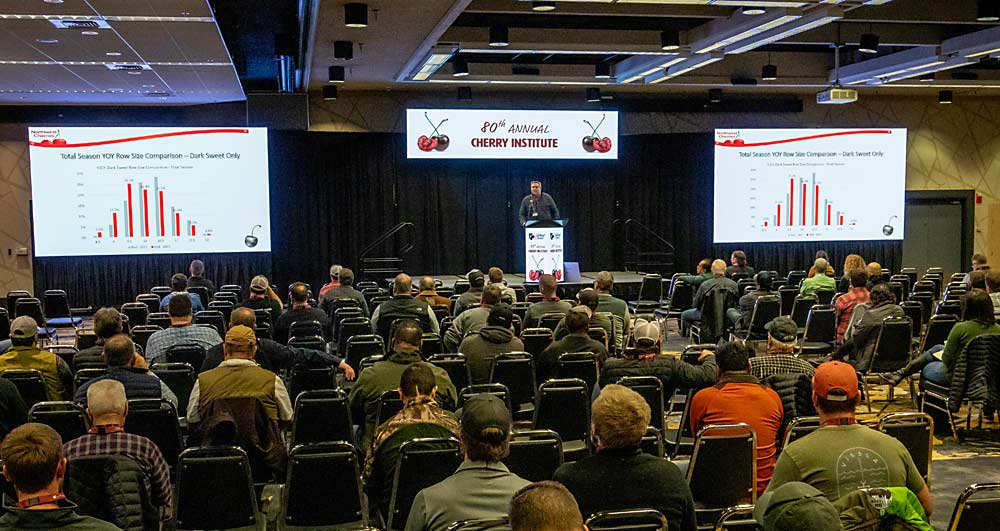
The 80th annual Cherry Institute in Yakima kicked off with a look back at the 2022 crop from B.J. Thurlby, president of the Northwest Cherry Growers, which hosts the event.
“Last year’s season was a challenge from start to finish,” Thurlby said, adding that he usually likes to reflect on both challenges and highlights. “The prices for the fruit were higher than we’ve ever seen, but when we put all those numbers together for half a crop, nobody made any money.”
Indeed, Pacific Northwest cherry growers harvested just 13 million boxes, compared to a normal crop of 21 million 20-pound boxes.
Reflecting on the pricing data, which rose above $8.99 in some Eastern markets, Thurlby said it was clear that prices around $4.99 or under were the sweet spot to move a lot of volume.
Following Thurlby, Washington State University pathologist Scott Harper gave a talk on the latest in research on X disease, which causes small, bitter tasting, unmarketable fruit and gave rise to the common term “little cherry disease.” The disease is caused by a phytoplasma pathogen that is spread by a few species of leafhoppers, but it has a wide host range in trees, common orchard weeds and native species such as sagebrush and chokecherry.
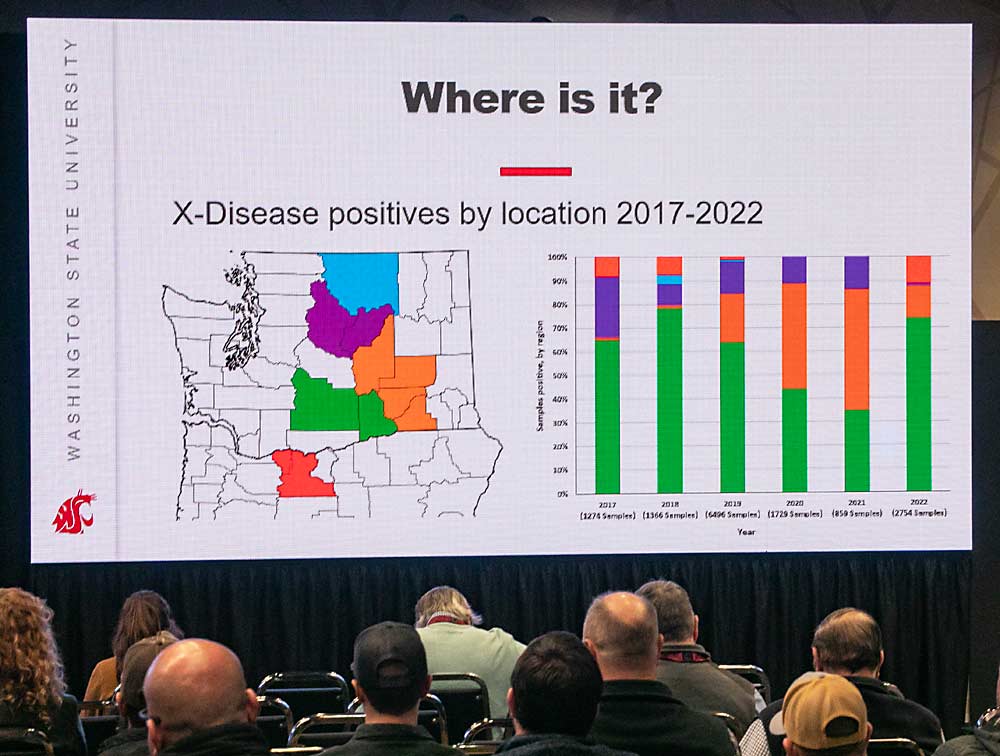
Controlling weeds can reduce the appeal of the orchard to leafhoppers, Harper said. Postharvest leafhopper control should be a priority, but the trees themselves are the biggest source of inoculum from year to year.
“Remove infected trees. It matters. They are the ones that carry it from season to season to season,” Harper said. “It can be controlled. It’s not easy, but it can be done.”
New genetic research has revealed that the current outbreak of X disease is driven by different strains of X disease than the industry previously grappled with decades ago.
“It’s not the same pathogen we were dealing with 50 years ago,” Harper said. Today’s pathogen has a broader host range, more aggressive spread and no foliar symptoms, which enables it to go undetected.
The CEO of a Chilean producer filled in the crowd on the rapid growth of his country’s cherry industry and its plans to build a packing facility in Selah this year to fill the market year-round.
Ramon Arrau of Giddings Cerasus S.A. said cherry growers in Chile average 100 percent profit over their costs of production. The country produces more than 350,000 metric tons of cherries, more volume than the United States now.
“And we keep planting cherries,” he said
Demand in China is driving the surge, he said. China, which charges Chile low tariffs compared to the U.S., accounts for about 69 percent of Chile’s cherry exports. The U.S. is second at 12 percent. And 95 percent of Chile’s cherry exports are shipped by boat.
Those conditions put Chile’s industry at risk of political turmoil and problems with shipping logistics, Arrau said.
Lunchtime keynote speaker Jim Wisenmeyer, a political writer from Washington, D.C., gave some updates and prognostications of federal politics.
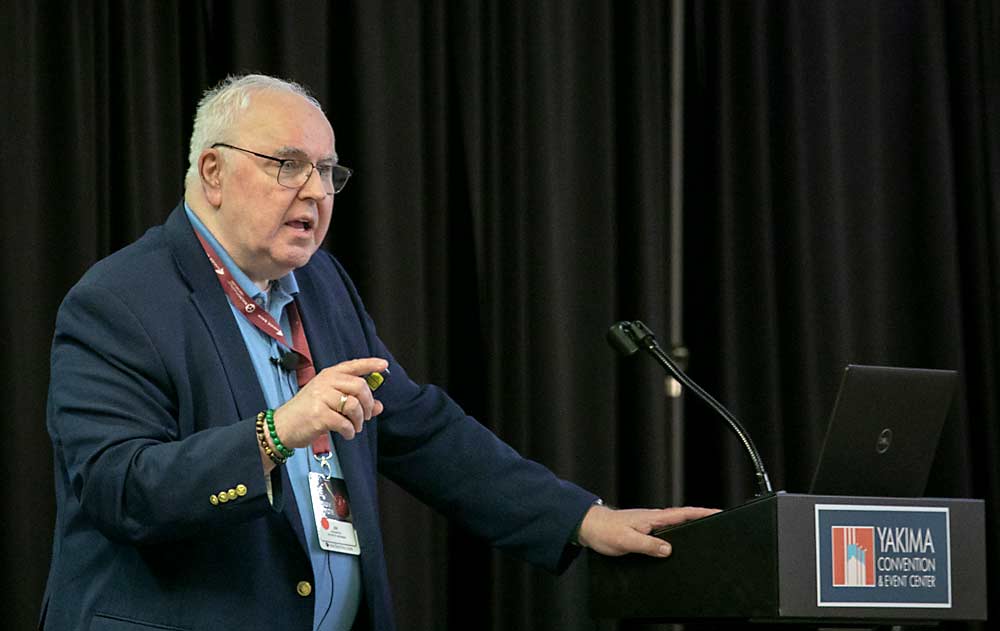
Though there are still plenty of differences in the nation’s capitol, he expects a movement toward compromise and centrist policies because elected officials have been hearing the complaints from their constituents.
“I don’t think it will be total gridlock,” he said.
He expects a tough fight for a 2023 Farm Bill, but growers have in their corner some politicians willing to fight for a more robust specialty crop insurance program, among other issues.
On a less cheery note, he believes the globe has seen the initial volleys of World War III, which will take place in space and online as much as on land. But he has faith in American innovation, he said.
“We have the entrepreneurial spirit in this country, and it’s going to shine in the years ahead,” he said.
Other presentations included marketing cherries domestically and abroad from James Michael and Keith Hu of Northwest Cherry Growers, crop load management and nutrient management from Washington State University’s Matt Whiting and Bernardita Sallato, and a labor policy update from Kate Tynan of the Northwest Horticultural Council.
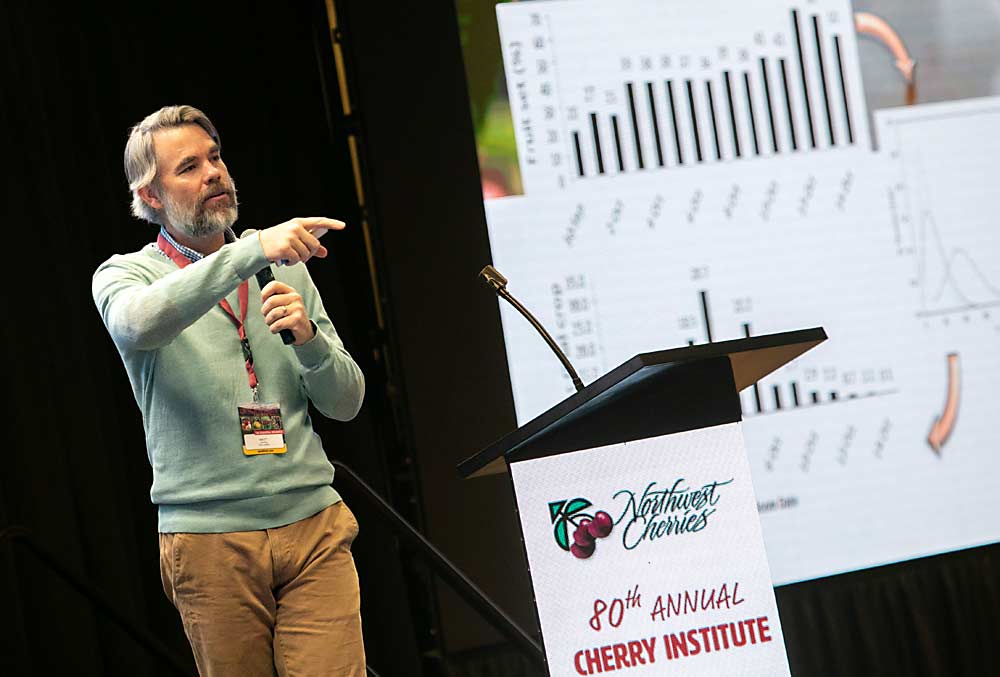
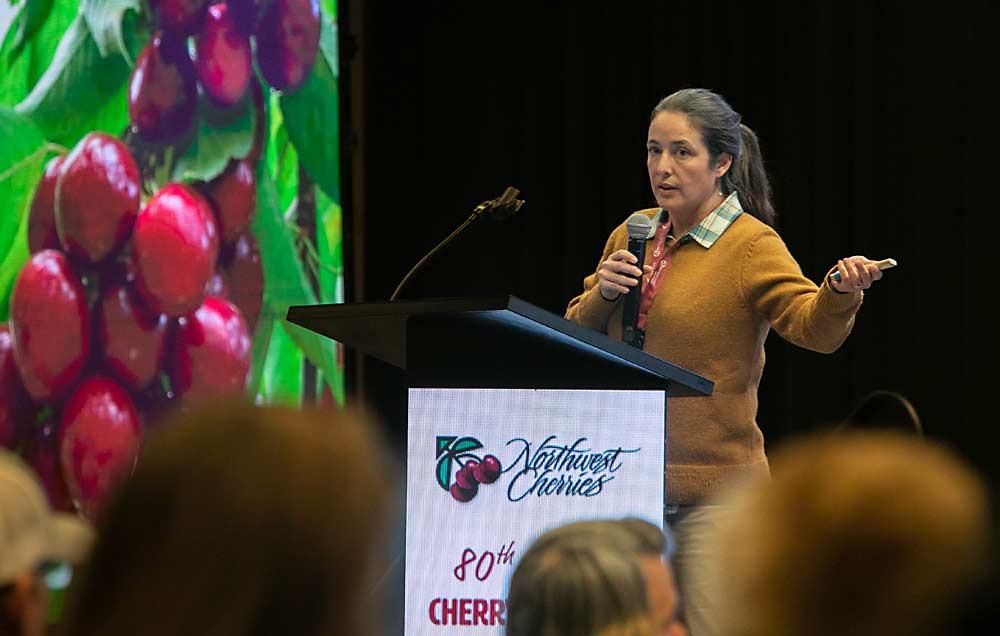
—by Kate Prengaman and Ross Courtney






Leave A Comment